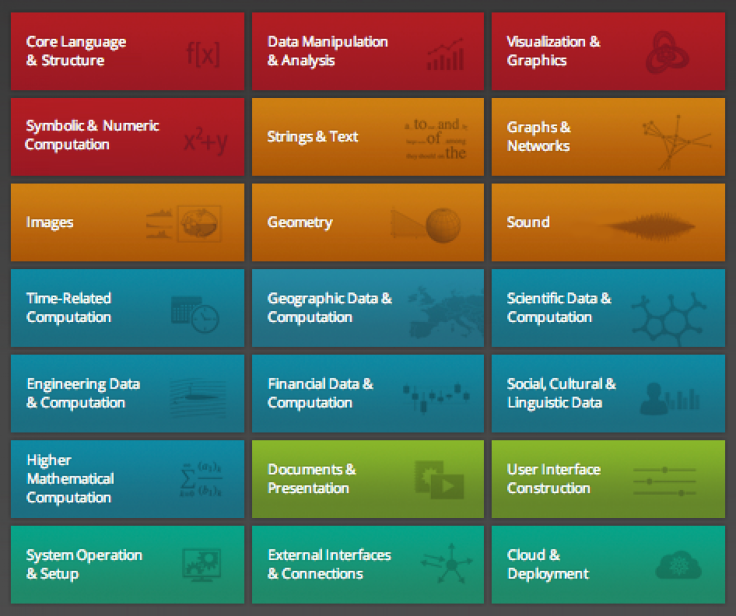What Is Stephen Wolfram Talking About? A Look At The Wolfram Language

Skynet is being born, and Wolfram Research is at the forefront of its development. At least that’s what Stephen Wolfram’s blog may lead one to believe. Wolfram unveiled his group’s new development project, called the Wolfram Language, in a staggeringly long and somewhat confusing blog post Wednesday. The post modestly touts the new language’s power by saying, “Between the Wolfram Language—with all its built-in computation and knowledge, and ways to represent things—and our Universal Deployment System, we have a new kind of universal platform of incredible power.”
After some careful reading, eliminating the hyperbolic speech and grandiosity that Wolfram uses, one can see that the Wolfram Language is as vast and staggering as the post itself. The language seems to seek to simplify the developmental process for pretty much everything that can be done on a computer using the suite of products Wolfram currently offers, becoming the culmination of all they have “achieved in the past 25+ years.”
Some background: Wolfram produces three major projects: Mathematica, Wolfram|Alpha, and CDF, their proprietary document format, all of which the Wolfram Language will use as a tripod for support. Mathematica is a highly sophisticated math program that allows users to solve simple to highly complex mathematical equations and go on from there. CDF (Computable Document Format) is Wolfram’s version of Adobe’s PDF, the standard for downloadable documents. However, CDF offers consumers more control and customization, “empowering readers to drive content and generate results live,” whereas other document solutions are “like yesterday’s paper – flat, lifeless, inactive.”
Wolfram|Alpha, the company's most consumer-friendly offering, is a “computational knowledge engine,” allowing users to ask it questions and get real answers. Say you want to know how many calories are in a McDonald’s Big Mac. If you search for the answer on Google, the search giant will bring up McDonald’s nutritional information page. Helpful, but not succinct. Search the same thing in Wolfram|Alpha and you get 520 calories, and a bunch of math and science on how that number came to be. Succinct and exactly what you were looking for in a simple, verifiable answer.
What the blog post fails to convey is any specificity on this new project, leading readers to speculate on how it will be utilized. However, what is clear is that it approaches computer languages differently. A general-purpose language, for example C++, gives programmers the basic tools to build simple and complex programs alike through a universal set of commands. How the Wolfram Language differs is instead of specific commands that look complicated and odd, unfamiliar to the average Joe, the Wolfram Language is speculated to use regular language to describe a task and implement it, much like Wolfram|Alpha uses regular questions with regular answers. In fact, according to Stephen Wolfram, it’s “the language used to implement Wolfram|Alpha,” as well as Mathematica and CDF.
Surprisingly, Wolfram held back a lot of information on the new language, instead citing what it may be able to do in time, saying that “It’s quite an array of different things.” He then offers this graph to show the range of this new language.

Whether this language will be a bust or if it’s the foundation for future sentient AI is still unknown, even to Wolfram himself. “It’s hard to foresee the ultimate consequences of what we’re doing. But the beginning is to provide a way to inject sophisticated computation and knowledge into everything — and to make it universally accessible to humans, programs and machines, in a way that lets all of them interact at a vastly richer and higher level than ever before.”
© Copyright IBTimes 2024. All rights reserved.











